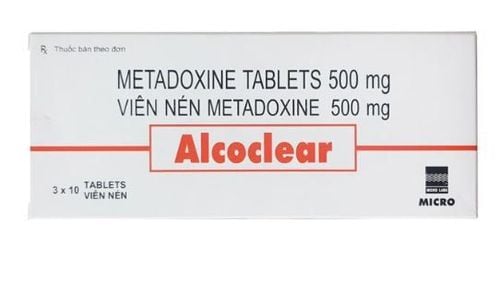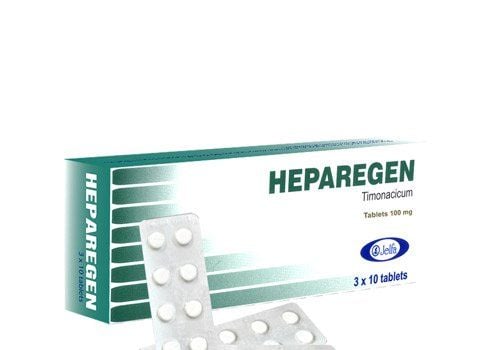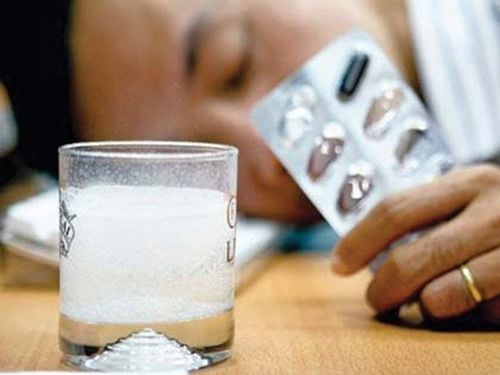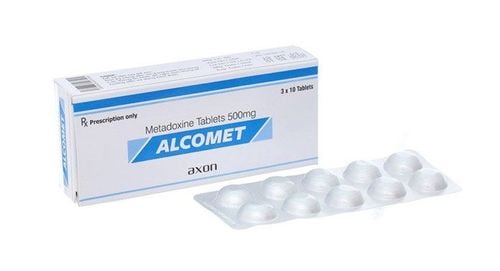Nausea after drinking alcohol is a common symptom, especially for those who consume large amounts. So, why do you feel nauseous after drinking alcohol? How to treat nausea after drinking alcohol?
1. What is nausea after drinking alcohol?
Nausea and vomiting serve as the body's reflexes to protect and eliminate toxins from the stomach. These reactions are stimulated by both the nervous and humoral systems. When you feel nauseous after drinking alcohol, it activates the vomiting control center located on both sides of the floor of the fourth ventricle, near the postrema area.
Nausea after drinking alcohol typically occurs 1-2 minutes after an increase in gastric slow waves, accompanied by elevated blood indicators such as:
- Cortisol
- Beta-endorphin
- Epinephrine
- Norepinephrine
2. Why do I feel nauseous after drinking alcohol?
There are several reasons you might feel nauseous after drinking alcohol. The liver is responsible for detoxifying the body; if it cannot process the amount of alcohol consumed, vomiting becomes a mechanism for expelling alcohol from the system.
Some individuals are more susceptible to alcohol and may experience poisoning if they drink excessively. Symptoms of alcohol poisoning can include:
- Vomiting
- Confusion
- Convulsions
- Loss of coordination
- Irregular breathing
- Unconsciousness
- Hematemesis (Vomiting blood)
So why do I feel nauseous after drinking alcohol? Nausea while drinking alcohol may arise from various factors:
- Imbalance: Alcohol affects the nervous system, leading to a loss of balance and resulting in nausea and vomiting.
- Irregular heartbeat: Consumption of alcohol can impact heart rate and breathing, leading to a feeling of a rapid heartbeat.
- Hypothermia: Alcohol can lower body temperature, which may contribute to feelings of nausea and vomiting.
- Stomach irritation: Alcohol can cause stomach irritation. You may feel nauseous and uncomfortable in your stomach, causing nausea and vomiting.
- Nerve problems: Alcohol contains stimulants, alcohol, etc. Therefore, it can affect the nerves, causing you to vomit, seizures, etc.
- Dehydration: Alcohol can lead to dehydration, which can affect brain function and result in symptoms like dry mouth and nausea after drinking alcohol.
3. Nausea after drinking alcohol should not be taken lightly
While nausea and vomiting after drinking are common, many people mistakenly believe that vomiting can help them sober up quickly. Continuous vomiting, however, can be a warning sign of health issues, including:
- Mild gastroparesis: This condition affects the movement of food from the stomach to the intestines. Alcohol affects the rate of digestion in the stomach. Food digestion will be slower, and protein in the stomach will begin to decompose, creating toxins that cause vomiting.
- Alcohol poisoning: Persistent vomiting may indicate alcohol poisoning, which poses significant health risks.
- Ketoacidosis: This condition can also lead to nausea after drinking alcohol. When the body's cells require sugar and insulin, alcohol can inhibit insulin production by the pancreas, resulting in nausea and continuous vomiting after consumption.
4. How to treat nausea after drinking alcohol
Nausea after drinking alcohol is a common issue that should not be overlooked. Here are some effective ways to relieve nausea after drinking alcohol:
- Drink ginger tea: Ginger has a spicy flavor and warm properties that can effectively reduce nausea. You can either buy ginger tea bags or steep a few slices of fresh ginger in a cup of warm water.
- Avoid eating or drinking for 1-2 hours: It is advisable to refrain from eating or drinking anything for 1-2 hours after consuming alcohol. You may sip on cooled boiled water during this time to help alleviate hangover symptoms.
- Avoid citrus drinks: Beverages made from citrus fruits such as orange, grapefruit, lemon, kumquat, etc, should be avoided while drinking, as they can lead to vomiting and irritate the stomach.
- Eat easy-to-digest foods: If you're feeling nauseous but haven't vomited, try consuming a slice of dry bread or hot porridge to help settle your stomach.
In addition, to treat nausea after drinking water over the following days, consider incorporating foods rich in potassium and calcium, such as:
- Bananas
- Potatoes
- Unsweetened milk
- Dark green vegetables
- Beans
- Shrimp
- Oysters
If you experience any unusual signs of alcohol poisoning, seek medical attention immediately.
5. How to prevent nausea after drinking alcohol
To prevent nausea after drinking, keep the following tips in mind:
- Eat before drinking.
- Limit the amount of alcohol consumed.
- Snack on food while drinking.
- Avoid continuously filling your cup.
- Do not mix soft drinks or other beverages with alcohol.
- Drink plenty of water after consuming alcohol to help mitigate its effects on your body.
In summary, nausea after drinking alcohol is a common occurrence. Simple remedies such as drinking ginger tea, resting, and eating easily digestible foods can help alleviate the symptoms. However, if nausea is accompanied by any unusual symptoms, it is important to consult a medical professional for appropriate treatment.
Please dial HOTLINE for more information or register for an appointment HERE. Download MyVinmec app to make appointments faster and to manage your bookings easily.













